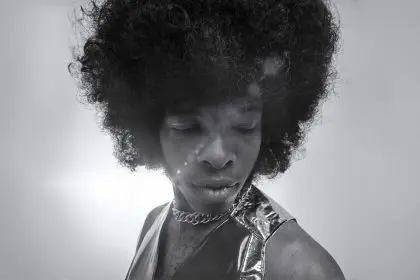The evolution of thrillers has taken an intriguing turn, particularly for viewers who grew up during the emergence of modern cinema in the 1980s and 1990s. Recent releases have shifted away from predictable storylines, offering narratives that resonate differently with audiences who remember the genre’s earlier conventions.
A welcomed shift in storytelling
Contemporary thrillers have begun exploring scenarios that feel refreshingly distant from the lived experiences of many viewers. This transformation provides an opportunity for audiences to enjoy suspenseful entertainment without the weight of familiar anxieties. The change represents a significant departure from traditional thriller formulas that often relied on outdated tropes and predictable character dynamics.
Understanding the deeper connection
Modern thriller audiences bring their life experiences to their viewing habits. Those who came of age during the cultural shifts of the late 20th century often find themselves particularly attuned to the subtleties of these films. Their understanding of social dynamics and survival instincts, honed through decades of real-world experience, adds an extra layer of appreciation for these newer narratives.
Notable films that break conventional patterns
Recent years have produced several standout thrillers that showcase this evolution in storytelling. These films demonstrate how the genre can create tension and suspense while avoiding tired narrative structures.
Speak No Evil examines the consequences of excessive politeness through the story of an American family visiting British hosts. The film’s exploration of social boundaries resonates particularly well with viewers who understand the importance of maintaining clear personal limits.
Pontypool reimagines the zombie genre through the perspective of a radio disc jockey, creating tension through isolation and limited information. The protagonist’s delayed recognition of danger serves as a counterpoint to viewers who pride themselves on heightened situational awareness.
Disclosure delves into workplace dynamics and personal identity, following an aerobics instructor’s desperate attempts to maintain her position and youth. The film’s themes of professional preservation and authenticity speak to audiences familiar with career challenges and societal pressures.
Hereditary explores generational trauma through supernatural horror, presenting a family confronting their dark legacy. Its examination of inherited struggles and family dynamics offers particular resonance for viewers who understand the complexity of generational relationships.
The Innocents weaves together three families’ encounters with returned deceased relatives, creating a narrative that explores grief and acceptance. The film’s thoughtful approach to loss and family bonds connects deeply with audiences who have navigated similar emotional terrain.
Saint Maud presents a psychological thriller centered on mental health and personal beliefs, following a caregiver’s descent into religious obsession. Its nuanced portrayal of psychological struggles resonates with viewers who understand the importance of mental health awareness.
Contemporary classics that redefined expectations
Several films from the past few decades have set new standards for the thriller genre. Single White Female remains a cautionary tale about trust and boundaries in personal relationships. Its themes continue to resonate with viewers who recognize the importance of careful judgment in forming close relationships.
Funny Games deconstructs home invasion narratives by examining privilege and false security. The film’s commentary on violence and entertainment particularly impacts viewers who understand systemic vulnerabilities.
Black Swan explores perfectionism and identity through the lens of professional ballet, creating a psychological thriller that speaks to audiences familiar with the pressure to excel and maintain appearances.
Ready or Not combines survival horror with social commentary, following a bride’s fight for survival against her wealthy in-laws. The film’s examination of class dynamics and family obligations resonates with viewers who understand navigating complex social structures.
Impact on contemporary cinema
These films represent a significant evolution in thriller storytelling. By moving away from conventional narrative structures, they create opportunities for audiences to engage with suspense and fear from a more comfortable distance. This shift allows viewers to appreciate the artistry and commentary within these films without the burden of personal connection to the dangers portrayed.
The success of these movies demonstrates the industry’s growing understanding of diverse audience perspectives. It shows how thrillers can maintain their impact while moving beyond traditional narrative constraints.
Looking toward the future
As the thriller genre continues to evolve, it presents opportunities for even more innovative storytelling approaches. The current trend suggests a future where suspense and fear can be explored through increasingly sophisticated and nuanced narratives.
For audiences who have witnessed the genre’s evolution over decades, these new directions in thriller filmmaking offer both entertainment and validation. They represent a maturation of the genre that acknowledges and respects the perspectives of experienced viewers while continuing to push creative boundaries.












